The Economics and Statistics Division maintains archives of previous publications for accountability purposes, but makes no updates to keep these documents current with the latest data revisions from Statistics Canada. As a result, information in older documents may not be accurate. Please exercise caution when referring to older documents. For the latest information and historical data, please contact the individual listed to the right.
<--- Return to Archive
For additional information relating to this article, please contact:
August 31, 2022COMPENSATION OF EMPLOYEES Q2 2022 Nova Scotia’s seasonally adjusted employee compensation (wages and salaries + employers’ social contributions) increased 3.9% in the second quarter of 2022 to $7.157 billion. The wages and salaries portion of employee compensation increased 4.0% to $6.185 billion in the second quarter and employers' social contributions were up 3.1% to $971 million.
Employee compensation in Q2 2022 was up 9.7% in Nova Scotia when compared to the second quarter of 2021 with a 9.6% increase in wages and salaries and a 10.3% increase in employers' social contributions.
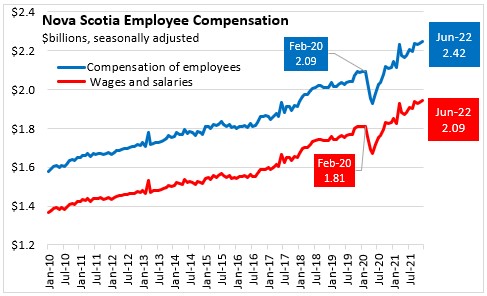
In June 2022, employee compensation increased 11.0% compared to June 2021, with wages and salaries up 10.9% and employers' social contributions up 11.4%.
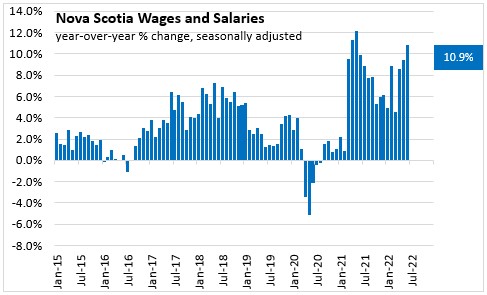
Provincial Comparison
In the second quarter of 2022, Canada’s employee compensation was up 2.0% from the previous quarter with all provinces registering gains. Atlantic provinces posted the largest increase in the second quarter of the year. The smallest percentage increases were in Quebec, Manitoba, and Saskatchewan.

In the first half of the year, Canada's employee compensation increased 7.9% compared to January-June 2021. All provinces had increases. The largest percentage increases were in British Columbia and Quebec.
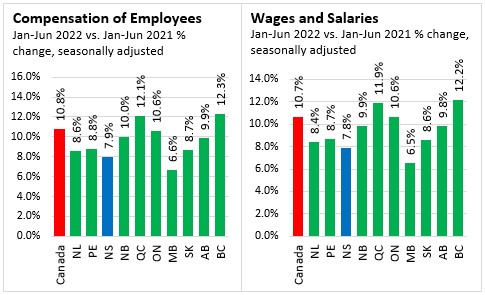
Nova Scotia Sectors (unadjusted, Q2 2022 vs Q2 2021)
Comparing the seasonally unadjusted data for Q2 2022 with the same quarter in 2021, total wages and salaries increased 9.4% in Nova Scotia.
Mining and oil and gas extraction and agriculture, forestry and fishing sectors reported lower total wages and salaries.
Within the goods-producing sector, utilities (+13.6%) and construction (+10.9%) reported the faster growth.
Professional and personal services and information and cultural industries reported higher growth than finance and real estate, wholesale and retail trade, and transportation and storage.
Local government public administration, education services and health care and social assistance reported higher growth than military, Federal government public administration and provincial public administration.
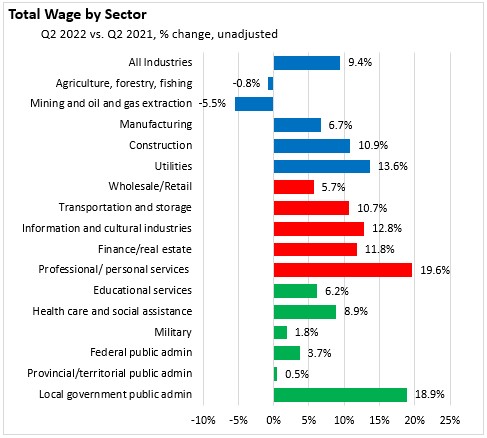
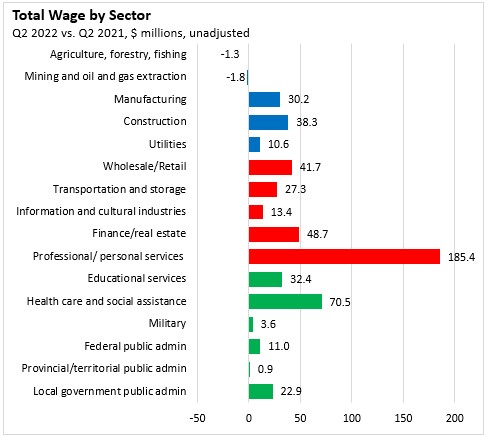
Nova Scotia Sectors (unadjusted, Jan-Jun 2022 vs. Jan-Jun 2021)
On a year-to-date basis, Nova Scotia's unadjusted total wages and salaries earned has increased 7.6%. Mining and oil and gas extraction and military sectors reported lower total wages and salaries.
Within the goods-producing sector, construction reported the faster growth. Within the services-producing sector, professional and personal services and information and cultural industries report the largest increases. In public sector, local government public administration reported the largest increase.
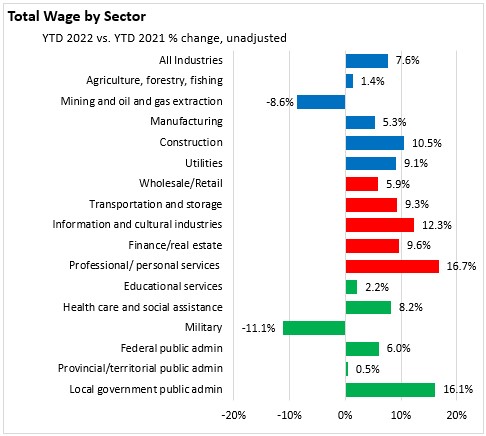
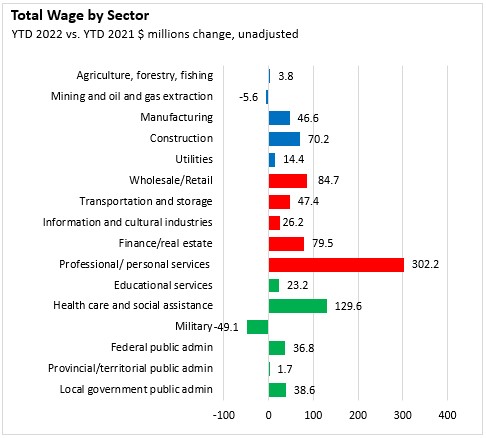
Note: comparison of wages and salaries by sector rely on data that are neither seasonally adjusted nor adjusted to reflect differences in pay periods from one year to the next. Compensation of employees data includes wage and salaries income that is supported by government subsidy programs including COVID-19 measures such as the Canadian Emergency Wage Subsidy.
Statistics Canada. Table 36-10-0205-01 Wages, salaries and employers' social contributions (x 1,000)
<--- Return to Archive